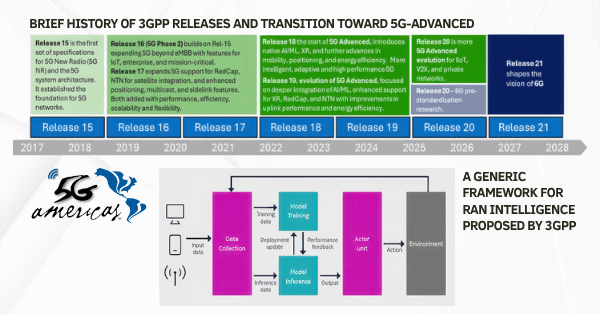What Are AI Agents?
AI agents are intelligent software systems capable of autonomously performing tasks, making decisions, and adapting to their environment based on data. They interact with users, digital systems, and real-world data to enhance business processes, improve decision-making, and automate repetitive tasks. Unlike traditional automation systems, AI agents are designed to learn, adapt, and make context-aware decisions. They use machine learning, natural language processing (NLP), retrieval-augmented generation (RAG), and knowledge-based reasoning to achieve high levels of intelligence.
Essential Features of AI Agents: What Makes Them Smart & Adaptive?
AI agents differ from traditional automation systems because they are not just rule-based but also adaptive, autonomous, and intelligent. Their ability to understand context, make decisions, and integrate with other systems makes them indispensable across industries. Here’s a detailed breakdown of the core features that define AI agents:
1. Autonomy: Independent Decision-Making Without Human Intervention
AI agents operate independently and can complete tasks without requiring constant human oversight.
- Example: AI-powered chatbots and virtual assistants can answer customer queries, troubleshoot issues, and guide users through workflows without needing human agents.
- Why It Matters: This allows businesses to scale their operations efficiently while reducing dependency on manual intervention.
2. Learning & Adaptation: Continuous Improvement Through AI Training
AI agents improve over-time by learning from their experiences, interactions, and new data inputs.
- Example: AI in fraud detection systems learns from previous fraudulent transactions to detect and prevent new fraud attempts more effectively.
- Why It Matters: This makes them more effective over time, reducing errors and increasing accuracy.
3. Decision-Making: Advanced AI Logic for Contextual Understanding
AI agents analyze complex scenarios, process large datasets, and select the best possible action based on real-time information.
- Example: AI-powered financial tools assess market trends, past performances, and economic indicators to make investment recommendations.
- Why It Matters: Unlike traditional automation that follows pre-defined rules, AI agents can make intelligent, real-time decisions even when faced with unpredictable situations.
4. Multi-Modal Interaction: AI That Understands Text, Voice, Images & Data
AI agents can process multiple types of inputs beyond just text, allowing for richer and more dynamic user interactions.
- Example: A healthcare AI assistant can interpret X-ray images, understand doctors’ voice commands, and extract medical data from reports to provide a comprehensive diagnosis.
- Why It Matters: This flexibility enables AI agents to work across industries, integrating into customer service, healthcare diagnostics, and security systems.
5. Integration Capabilities: AI Agents That Work With APIs & Databases
AI agents can seamlessly integrate with other tools, pulling and processing data from external systems such as databases, APIs, and third-party software.
- Example: AI-powered HR chatbots integrate with an organization’s HR management system to provide employees with real-time information on payroll, leave requests, and company policies.
- Why It Matters: This connectivity ensures that AI agents can function as part of a broader digital ecosystem, improving workflow efficiency and data accessibility.
6. Natural Language Processing (NLP) & Understanding
AI agents equipped with NLP can process and understand human language, enabling better human-computer interactions.
- Example: Virtual assistants like ChatGPT, Google Bard, and Amazon Alexa can comprehend user intent, respond naturally, and carry out complex tasks.
- Why It Matters: This capability allows them to interact conversationally, making chatbots, voice assistants, and AI-driven customer support systems more user-friendly.
7. Memory Retention: Context-Aware AI Agents
AI agents can retain information from previous interactions, enabling long-term contextual awareness.
- Example: AI-powered customer service bots remember previous conversations, allowing them to provide more relevant responses and personalized solutions.
- Why It Matters: Without this feature, users would need to restate their queries every time, making the experience frustrating and inefficient.
AI Agents vs. Traditional Automation
| Feature | AI Agents | Traditional Automation |
|---|---|---|
| Autonomy | ✅ Fully autonomous, minimal human intervention | ❌ Requires constant human oversight |
| Learning & Adaptation | ✅ Continuously learns & improves over time | ❌ Rule-based, no learning capability |
| Decision-Making | ✅ Intelligent, real-time, data-driven | ❌ Predefined, rule-based decisions |
| Multi-Modal Processing | ✅ Can process text, voice, images, and structured data | ❌ Limited to specific inputs |
| Integration Capabilities | ✅ Connects with APIs, databases & external software | ❌ Limited to predefined integrations |
| NLP & Communication | ✅ Understands human language, interacts naturally | ❌ Requires structured inputs |
| Memory & Context Retention | ✅ Remembers past interactions for better responses | ❌ No memory, each interaction is independent |
AI Agents in Action: Industry Use Cases & Business Impact
The impact of AI agents is widespread, influencing key industries such as healthcare, finance, customer service, e-commerce, and education. Companies using AI agents report higher efficiency, reduced operational costs, and improved customer engagement. Let’s explore how AI agents are driving transformation across industries:
| Industry | How AI Agents Are Used | Business Impact |
|---|---|---|
| Healthcare | AI-driven diagnostics, personalized treatment, and healthcare chatbots | Faster diagnoses, lower medical errors, improved patient outcomes |
| Finance | Fraud detection, risk assessment, and AI-powered trading | Reduced fraud, optimized investments, improved financial security |
| Retail & E-Commerce | AI-powered recommendations, chatbots, and inventory optimization | Increased sales, reduced cart abandonment, better stock management |
| Customer Service | AI chatbots for 24/7 support, sentiment analysis for feedback | Faster response times, improved customer satisfaction, lower operational costs |
| Manufacturing & Logistics | Predictive maintenance and AI-driven supply chain optimization | Lower maintenance costs, reduced downtime, streamlined operations |
| Education | Adaptive learning platforms, AI tutors, and automated grading | Personalized education, reduced teacher workload, enhanced student engagement |
1. Healthcare: AI-Powered Diagnosis & Personalized Treatment
AI agents are playing a critical role in healthcare, assisting doctors, nurses, and researchers with:
- Medical Imaging Analysis: AI models like Google’s DeepMind and IBM Watson Health analyze X-rays, MRIs, and CT scans to detect diseases faster and more accurately.
- Personalized Treatment Plans: AI-driven agents analyze patient history and genetic data to provide tailored treatment recommendations.
- Healthcare Chatbots: AI assistants like Buoy Health and Ada assist patients with symptom checking and direct them to the right care provider.
Impact: Faster diagnoses, lower medical errors, improved patient outcomes.
2. Finance: Risk Analysis, Fraud Detection & Automated Trading
Financial institutions use AI agents to enhance security, automate trading, and improve customer service:
- Fraud Detection: AI-powered fraud prevention tools like Visa’s AI Risk Management System analyze transaction patterns and detect anomalies in real-time.
- Automated Trading: AI trading bots like Kavout and Trade Ideas analyze market trends and execute trades at the best possible time.
- Risk Management: They assist financial institutions in assessing loan eligibility and identifying investment risks.
Impact: Lower fraud rates, optimized trading strategies, reduced financial risks.
3. Retail & E-Commerce: AI-Driven Customer Experience & Inventory Optimization
E-commerce companies are leveraging AI agents to personalize shopping experiences and optimize inventory:
- Recommendation Engines: AI agents like Amazon’s Personalize and Shopify’s AI Tools provide tailored product recommendations based on customer behavior.
- AI Chatbots: AI-powered assistants like Drift and LivePerson handle customer inquiries, reducing response time.
- Supply Chain Optimization: AI-driven demand forecasting tools help prevent overstocking or shortages.
Impact: Increased sales, reduced cart abandonment, optimized inventory management.
4. Customer Service: AI Chatbots & Sentiment Analysis
AI agents are revolutionizing customer service by providing 24/7 support and enhancing customer interactions:
- Virtual Assistants: AI chatbots like ChatGPT, Google Gemini, and Drift handle customer queries, making support faster and cost-effective.
- Sentiment Analysis: AI agents analyze customer reviews, social media comments, and emails to identify satisfaction trends.
Impact: Improved customer satisfaction, reduced human workload, real-time issue resolution.
5. Manufacturing & Logistics: AI for Predictive Maintenance & Automation
AI agents in manufacturing help companies optimize operations through real-time monitoring and predictive analytics:
- Predictive Maintenance: AI monitors machine performance, preventing costly unexpected failures.
- AI-Driven Supply Chains: AI agents optimize logistics by analyzing weather, demand patterns, and supply availability.
Impact: Reduced operational downtime, lower maintenance costs, streamlined supply chain processes.
6. Education: Personalized Learning & AI Tutors
AI-powered learning tools enhance student engagement and educational outcomes:
- Adaptive Learning Platforms: AI-driven education platforms like Khan Academy, Duolingo, and Coursera AI Tutors create customized learning paths.
- Automated Grading: AI agents assist teachers by automating test scoring and assessments.
Impact: Personalized education, reduced teacher workload, higher student engagement.
Why Businesses Need AI Agents: Key Benefits
AI agents aren’t just a technology upgrade—they provide tangible business benefits by improving productivity, reducing costs, and enhancing customer experiences. Here’s how businesses can gain a competitive edge using AI agents:
| Benefit | How AI Agents Help | Business Impact |
|---|---|---|
| Increased Efficiency | Automates repetitive tasks, reducing manual work | Boosts productivity, frees employees for strategic tasks |
| Cost Reduction | Cuts operational expenses by automating workflows | Saves millions in labor costs, reduces errors |
| Enhanced Decision-Making | Processes large datasets for intelligent insights | Improves forecasting, reduces waste, optimizes decisions |
| Improved Customer Experience | Provides 24/7 AI-powered support & personalized recommendations | Increases engagement, customer satisfaction, and retention |
| Scalability | Handles growing workloads without increasing staff | Enables business expansion while keeping costs low |
| Competitive Advantage | AI-driven insights help businesses stay ahead | Strengthens market position, enhances revenue potential |
| Data Security & Compliance | AI monitors threats & ensures regulatory adherence | Reduces financial risks, enhances security, and prevents fraud |
This high-level table provides a clear, WordPress-friendly summary of why businesses should integrate AI Agents. Let me know if you’d like any refinements!
1. Increased Efficiency: Automating Repetitive Tasks
AI agents eliminate manual labor by handling repetitive, time-consuming tasks, allowing human workers to focus on more strategic activities.
- Example: AI-powered email sorting systems categorize and prioritize emails based on importance and urgency, freeing employees from inbox overload.
- Impact: Companies see a boost in productivity, with less time wasted on repetitive administrative tasks.
2. Cost Reduction: Lower Operational Expenses
By automating customer service, data processing, and decision-making, AI agents help businesses cut costs significantly.
- Example: AI chatbots reduce the need for large customer support teams, lowering payroll expenses while still providing round-the-clock support.
- Impact: Businesses save millions annually by reducing labor costs, human errors, and inefficiencies.
3. Enhanced Decision-Making: AI-Powered Insights
AI agents process vast amounts of data quickly, helping businesses make smarter, data-driven decisions.
- Example: AI-powered inventory management systems predict product demand trends, ensuring businesses maintain optimal stock levels.
- Impact: Decision-makers can act with greater confidence, reducing waste, improving forecasting, and maximizing profitability.
4. Improved Customer Experience: Personalized AI Assistance
AI agents provide real-time, 24/7 customer support, improving response times and increasing customer satisfaction.
- Example: AI-driven personalized shopping assistants (like those used by Amazon and Netflix) analyze user behavior to recommend products or content.
- Impact: Customers feel more valued and understood, leading to higher engagement, loyalty, and retention rates.
5. Scalability: AI Adapts to Business Growth
Unlike human-driven operations, AI agents scale effortlessly, handling larger workloads without increasing staffing needs.
- Example: AI customer support agents can handle hundreds of customer inquiries simultaneously, something that would require large human teams.
- Impact: Businesses can expand operations quickly while keeping operational costs low.
6. Competitive Advantage: AI-Driven Market Leadership
Businesses that integrate AI agents early stay ahead of competitors by offering superior services and optimized operations.
- Example: AI-driven companies outperform competitors by leveraging predictive analytics to identify emerging market trends.
- Impact: Businesses maintain a stronger market position and higher revenue potential.
7. Data Security & Compliance: AI for Regulatory Adherence
AI agents can detect security threats, monitor transactions, and ensure compliance with industry regulations.
- Example: AI fraud detection tools in banking and insurance analyze millions of transactions daily, identifying fraudulent patterns.
- Impact: Businesses reduce financial losses, prevent security breaches, and avoid regulatory fines.
The Future of AI Agents: Why They’re Essential for Business Growth
AI agents are not just a tech upgrade; they are business enablers that drive efficiency, reduce costs, and improve decision-making. As companies continue to integrate AI-powered automation, those who leverage AI agents will remain at the forefront of innovation.
Next Blog: The 5 Core Components of AI Agents – Understanding what makes an AI agent truly intelligent!





























